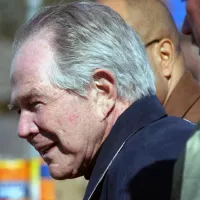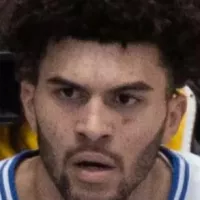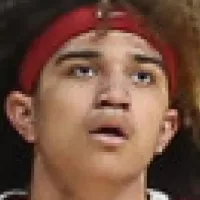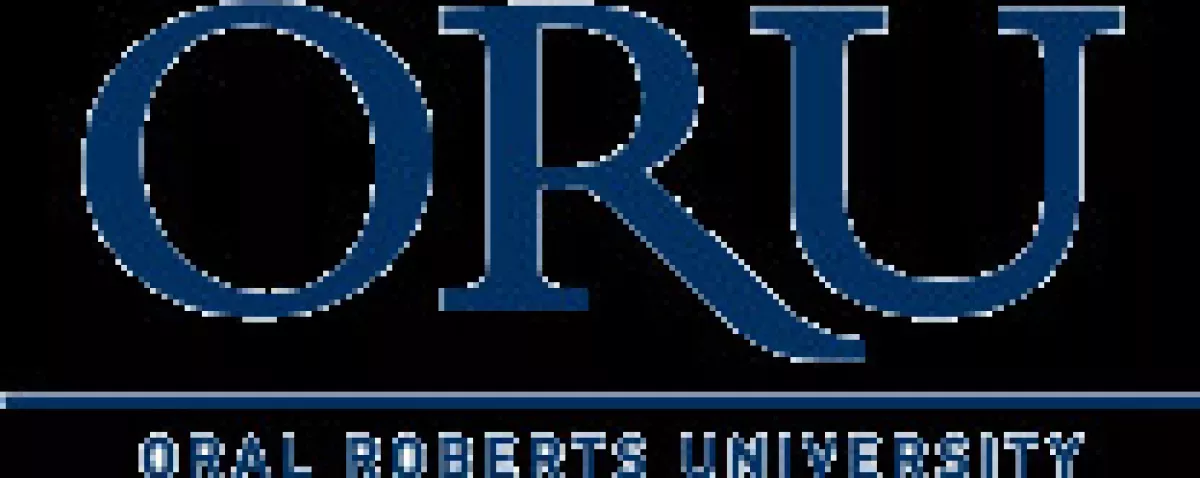Oral Roberts University (ORU) is a private evangelical university located in Tulsa, Oklahoma. Established in 1963 by renowned Charismatic Christian preacher Oral Roberts, the institution bears his name.
1962: Groundbreaking Ceremony for ORU
The groundbreaking ceremony for Oral Roberts University took place in Tulsa, Oklahoma in 1962.
1963: Construction Begins on ORU Campus
Construction on Oral Roberts University's campus began in 1963, featuring a futuristic design inspired by the 1933 Chicago World's Fair.
1963: Founding of Oral Roberts University
Oral Roberts University (ORU), a private evangelical university, was founded in 1963 in Tulsa, Oklahoma by Charismatic Christian preacher Oral Roberts.
1965: Titans and Lady Titans: ORU's Early Nicknames
ORU's early athletic teams were known as the Titans for men and the Lady Titans for women, chosen by student vote in 1965.
1965: Official Opening of ORU
Oral Roberts University officially opened its doors to students in 1965, welcoming an inaugural class of 300 students. Seven major buildings were completed at the time.
1967: Completion of the Prayer Tower and Dedication Ceremony
Oral Roberts University completed its iconic Prayer Tower, designed by architect Frank Wallace, in 1967. The tower's construction, costing $2 million, sparked debate. That same year, a dedication ceremony was held for the university, with evangelist Billy Graham delivering the keynote address.
1968: First Partial Graduation at ORU
Oral Roberts University held its first partial graduation ceremony in 1968.
1969: First Full Graduation Ceremony
In 1969, ORU celebrated its first full graduation ceremony.
1971: ORU Granted Accreditation by Multiple Institutions
In 1971, Oral Roberts University was granted accreditation by the Higher Learning Commission of the North Central Association of Colleges and Schools, and also by the Association of Theological Schools in the United States and Canada.
1971: ORU Receives Accreditation
Oral Roberts University achieved a significant milestone in 1971 when it was accredited by the North Central Association, affirming its academic standards and credibility.
1978: Establishment of the Oral Roberts University School of Medicine
ORU took a significant step in medical education by founding the Oral Roberts University School of Medicine in 1978.
1978: ORU Baseball's First College World Series Appearance
ORU's baseball team made its first appearance in the College World Series in 1978.
1979: Establishment of the O.W. Coburn School of Law
Expanding its academic offerings, ORU established the O. W. Coburn School of Law in 1979.
1981: Opening of the City of Faith Medical and Research Center
ORU opened the City of Faith Medical and Research Center, a hospital, in 1981, demonstrating its commitment to healthcare.
1981: City of Faith Medical Center Opens
The City of Faith Medical and Research Center, consisting of a 60-story clinic, a 30-story hospital, and a 20-story research center, opened south of the ORU campus in 1981.
1986: Closure of ORU's Law School
Facing challenges, ORU made the difficult decision to close its law school in 1986. The school's library was donated to Pat Robertson's Bible-based college in Virginia, which later used it to establish the Regent University School of Law.
1989: Closure of City of Faith Medical Center
Due to financial difficulties and low demand, the original occupants of the City of Faith Medical and Research Center departed in 1989.
1989: Closure of the City of Faith and ORU School of Medicine
Financial difficulties led to the closure of both the City of Faith Medical and Research Center and the Oral Roberts University School of Medicine in 1989, marking a challenging period for the institution.
1991: Relocation of "Healing Hands" Sculpture
The 60-foot bronze sculpture "Healing Hands" by Leonard McMurray, initially positioned in front of the City of Faith towers, was moved to the ORU campus entrance in the summer of 1991.
April 30, 1993: ORU Adopts Golden Eagles Nickname
On April 30, 1993, all ORU athletic teams, both men's and women's, adopted the nickname "Golden Eagles."
November 17, 1993: Introduction of Eli the Golden Eagle
Eli the golden eagle, ORU's mascot, was introduced on November 17, 1993, before an exhibition basketball game.
1993: Richard Roberts Becomes President
In a significant leadership transition, Oral Roberts's son, Richard Roberts, was appointed president of the university in 1993.
January 1996: Launch of Golden Eagle Broadcasting
Oral Roberts University established Golden Eagle Broadcasting, a digital satellite Christian and family programming television network, in January 1996, expanding its media presence and outreach.
February 5, 1997: ORU Students Disrupt Mosque Services
On February 5, 1997, a group of ORU students mistakenly disrupted services at a mosque near the University of Tulsa on the 28th day of Ramadan, believing it to be the 27th. The incident led to discussions between university officials and the students, who offered differing accounts of the events compared to mosque attendees.
February 7, 1997: ORU Issues Apology to Islamic Society of Tulsa
Following the disruption of mosque services, Reverend Bill Shuler, who led religious services at ORU, issued a formal apology on February 7, 1997, to the Islamic Society of Tulsa.
1998: Start of ORU Baseball's Dominant Run
ORU's baseball team began a period of dominance in 1998, winning 12 consecutive conference championships and participating in 12 consecutive NCAA regional tournaments.
2000: Dress Code Modification for Winter
In 2000, an exception to the dress code was implemented, permitting women to wear pants during the winter months.
2003: Relaxation of Dress Code at ORU
ORU relaxed its student dress code for the first time in 40 years in early 2003, adopting a business casual approach.
March 2006: Protesters Arrested During Rally
In March 2006, eight peaceful protesters were arrested while rallying across the street from ORU's main entrance.
March 20, 2006: Soulforce Protests at ORU
LGBT rights organization Soulforce included ORU on its 2006 Equality Ride route on March 20, 2006, to protest the university's alleged discrimination against LGBT students, particularly its honor code's ban on homosexual activity. The protest led to the arrest of several activists who entered the campus despite being denied access.
2006: Further Easing of Dress Code Restrictions
ORU further eased campus-wide dress code policies in 2006, allowing students to wear jeans to class and dress more casually in non-academic environments.
2006: ORU Faces Clemson in NCAA Super Regional
ORU's baseball team advanced to the NCAA Super Regional in 2006, where they faced Clemson.
February 2007: ORU Introduces New Art Degrees
In February 2007, ORU announced the introduction of new art degrees, expanding its academic programs in the arts.
October 2007: Former Professors File Lawsuit Against ORU
In October 2007, three former professors filed a lawsuit against ORU in Tulsa County, alleging wrongful termination, misuse of university assets by president Richard Roberts, and illegal involvement in a political campaign.
October 17, 2007: Richard Roberts Takes Leave of Absence
Amidst the lawsuit and allegations, Richard Roberts announced a temporary leave of absence as president of ORU on October 17, 2007, citing the strain on his family. Billy Joe Daugherty assumed the roles of Executive Regent of the Board of Regents and Interim President.
November 2007: Vote of No Confidence and Richard Roberts's Resignation
In a significant development, the tenured faculty of ORU passed a non-binding vote of no confidence in Richard Roberts in November 2007. Subsequently, Roberts submitted his resignation to the board of regents on November 23.
2007: ORU Campus Architectural Commentary
By 2007, ORU's campus, with its unleased floors in the CityPlex Towers, was recognized as a reflection of the popular modernist architecture of the 1960s, likened to "The Jetsons" set, yet also perceived as "shabby" and "dated" like Disney's Tomorrowland.
2007: ORU's 2007-08 Operating Budget
In 2007, ORU's operating budget for the 2007-08 academic year was over $82 million.
January 10, 2008: ORU Settles Lawsuit and Announces Presidential Search
ORU reached a settlement with plaintiff John Swails on January 10, 2008, reinstating him to his teaching position. The university also announced the formation of a search committee to find a new president, signaling a commitment to resolving the leadership crisis and moving forward.
January 14, 2008: ORU Accepts $62 Million from Mart Green Family
On January 14, 2008, ORU's board of regents unanimously voted to accept $62 million from the Mart Green family. The donation included changes to the university's governing board.
February 2008: Renewing the Vision Campaign Initiated
In February 2008, the Renewing the Vision campaign started with the goal of erasing ORU's debt through a $25 million matching campaign. The funds also contributed to 2008 summer campus renovations and scholarships.
2008: Funding Secured for Campus Maintenance
In 2008, $10 million from the Green family's donations was earmarked for the much-needed maintenance of various campus buildings and the Prayer Tower.
2008: Student Enrollment in 2008
In 2008, student enrollment at ORU was approximately 3,000.
January 2009: Mark Rutland Recommended as President
In January 2009, ORU's presidential search committee recommended Mark Rutland as the new president to succeed Richard Roberts. The trustees approved the recommendation.
January 29, 2009: Green Family Donates Additional $10.4 Million
On January 29, 2009, the Green family committed $10.4 million to further campus renovations and upgrades planned for summer 2009, reducing ORU's debt to $25 million.
April 15, 2009: Michael Armand Hammer Donates $1 Million
On April 15, 2009, Michael Armand Hammer made a $1 million donation to ORU's Whole Person Scholarship fund.
June 3, 2009: Debt Reduced to $720,000
As of June 3, 2009, donations and pledges had reduced ORU's debt to $720,000.
September 23, 2009: ORU Becomes Debt-Free
On September 23, 2009, it was announced that ORU had become debt-free during the university's chapel service.
September 25, 2009: Inauguration of Mark Rutland
On September 25, 2009, Mark Rutland's inauguration ceremony took place at the Mabee Center.
2009: Facial Hair Policy Update
In 2009, ORU updated its policy to allow male students to have neatly trimmed facial hair.
2009: End of ORU Baseball's Winning Streak
ORU's baseball team's streak of 12 consecutive conference championships and NCAA regional tournament appearances ended in 2009.
2009: Additional Funding for Campus Upkeep
The Green family provided an additional $10 million for campus maintenance during the summer of 2009.
December 2010: Green Family Announces $10 Million Gift
In December 2010, ORU announced that the Green family would make another $10 million donation in 2011 for renovations and technology improvements.
2010: ORU Partners with National Hispanic Christian Leadership Conference
In 2010, ORU collaborated with the National Hispanic Christian Leadership Conference to establish a bilingual Hispanic Center on campus, aiming to increase Hispanic student enrollment and address the high school dropout rate among Hispanic students.
2010: Frank Wallace on ORU Architecture
In a 2010 interview, Frank Wallace, the architect behind most of ORU's buildings, described his designs as "sculptures," revealing his inspiration stemmed from his lifelong hobby of whittling.
2011: Green Family's Total Donations Reach $110 Million
In 2011, the Green family's total donations to ORU reached $110 million.
2011: Early Assurance Program with OSU-CHS
ORU established an early assurance program with the Oklahoma State University Center for Health Sciences in 2011, providing high-achieving students with conditional admission to OSU's osteopathic medical school.
2011: Prayer Tower Renovation
The Prayer Tower underwent renovations in 2011, restoring it to its original purpose as a dedicated space for prayer.
January 31, 2013: Billy Wilson Selected as President
On January 31, 2013, ORU announced that Billy Wilson had been selected to succeed Mark Rutland as president, effective July 1, 2013.
July 1, 2013: Billy Wilson Assumes Presidency
On July 1, 2013, Billy Wilson officially assumed the role of ORU president.
2013: Florida Gulf Coast's Historic Run
ORU's achievement of reaching the Sweet Sixteen as a #15 seed in 2021 marked only the second time in history this feat was accomplished, following Florida Gulf Coast's historic run in 2013.
2013: Relaxation of Men's Hair Length Restrictions
Restrictions on the length of men's hair were relaxed in 2013.
2013: Armand Hammer Alumni-Student Center Opens
The Armand Hammer Alumni-Student Center, designed by KSQ Architects, PC, was completed in 2013, marking the first new building on ORU's campus in decades. It boasts Oklahoma's largest TV, a student lounge, a game center, and various recreational facilities.
July 2014: ORU Joins The Summit League
ORU became a member of The Summit League in July 2014, leaving its previous conference, the Southland Conference.
August 25, 2015: Student Informed of Exclusion from Campus
On August 25, 2015, ORU Administration learned of student Sabrina Bradford's marriage to a woman and informed her two days later that she was not welcome back on campus.
2016: Last #15 Seed Victory Before ORU
Before ORU's victory in 2021, the last time a #15 seed won an NCAA tournament game was when Middle Tennessee defeated Michigan State in the first round of the 2016 tournament.
November 1, 2017: Billy Wilson Preaches Controversial Chapel Service
On November 1, 2017, Billy Wilson delivered a chapel service titled 'Holy Sex,' which included controversial statements about homosexuality.
2017: New Facilities at ORU
ORU inaugurated its Global Learning Center and the ONEOK Sports Complex, a track and field stadium with tennis courts, in 2017.
2017: ORU Granted Title IX Exception
ORU was granted an exception to Title IX in 2017, allowing it to legally discriminate against LGBT students based on religious grounds. This decision sparked criticism and led to the university being ranked among the "Absolute Worst Campuses for LGBTQ Youth" by Campus Pride.
2017: Paul Mills Takes Helm of Men's Basketball
Paul Mills became the head coach of the ORU Golden Eagles men's basketball team in 2017.
2018: Wilson's Presidency Extended
In 2018, ORU announced that Billy Wilson would remain president for 10 years, or until at least 2028.
2018: Lee Mayberry Joins Women's Basketball Staff
In 2018, former NBA player Lee Mayberry was appointed as an assistant coach for ORU's women's basketball team.
2019: Student Enrollment Surpasses 4,100
By 2019, student enrollment at ORU had risen to over 4,100, reflecting growth under Wilson's presidency.
2019: Expansion and Scholarships at ORU
ORU added its first student housing since 1976, the Niko Njotorahardjo Residence Hall, and initiated a $75 million fund for scholarships and campus expansion in 2019.
2019: ORU Partners with G12 Vision
ORU entered into a partnership with G12 Vision in 2019, aiming to broaden the global accessibility of ORU's theological education.
2020: Impact 2030 Campaign Launched
In 2020, ORU began its $75 million Impact 2030 campaign, aiming to achieve 'maximum global impact' by 2030. The campaign focuses on international scholarships, building renovations, and converting the current library into the Center for Global Leadership.
2020: ORU Adapts to COVID-19 Pandemic
In response to the COVID-19 pandemic in 2020, ORU transitioned to virtual classes for the remainder of the spring semester. In the fall, the university implemented mandatory COVID-19 testing for students moving into dorms, required masks on campus, and adjusted class schedules to accommodate the pandemic's challenges.
March 2021: Andrew Hartzler Joins Class Action Lawsuit
In March 2021, Andrew Hartzler joined a class action lawsuit against the U.S. Department of Education, challenging the religious exemption that allows ORU to receive federal funds despite discriminatory policies.
March 2021: Max Abmas Earns Player of the Year
Max Abmas, a player for ORU's men's basketball team, was honored as the Summit League Men's Basketball Player of the Year in March 2021.
March 19, 2021: ORU Men's Basketball Upsets Ohio State
In a historic upset on March 19, 2021, the ORU men's basketball team, seeded #15, defeated the #2 seed Ohio State in the first round of the 2021 NCAA tournament.
March 26, 2021: Class Action Lawsuit Filed Against U.S. Department of Education
On March 26, 2021, the Religious Exemption Accountability Project filed a class action lawsuit against the U.S. Department of Education, citing abuses faced by LGBTQ+ students at ORU and other campuses.
April 2021: ORU Announces Campus Expansion and New Athletic Center
ORU embarked on a campus expansion project in April 2021, including the construction of a new welcome center, Media Arts Center, and library. This expansion was part of a $75 million campaign, with $60 million allocated for the new buildings and the remaining funds for student scholarships. Additionally, ORU revealed plans for the development of the Mike Carter Athletic Center, expected to exceed 40,000 square feet, and renovations to the Mabee Center.
December 7, 2021: Petition Against ORU's Anti-LGBTQ Honor Code
As of December 7, 2021, an online petition to change ORU's anti-LGBTQ honor code had gained over 10,000 signatures.
2023: ORU Baseball Returns to College World Series
The ORU baseball team returned to the College World Series in 2023.
2028: Projected End of Wilson's Extended Presidency
Billy Wilson's extended presidency at ORU is projected to last until 2028.
2030: Projected Goal for Global Impact
By 2030, ORU aims to have a 'maximum global impact' by educating students from 195 nations as part of the Impact 2030 campaign.
Mentioned in this timeline

Basketball is a team sport played on a rectangular court...
Virginia a state in the Southeastern and Mid-Atlantic US lies...
Florida a state in the Southeastern United States is largely...

Chicago is the most populous city in Illinois and the...

Pat Robertson was a prominent American televangelist media mogul and...
Canada is a North American country the second largest in...
Trending

23 minutes ago Cameron Boozer: Duke Forward, Elite Numbers, and Wooden Award Favorite

23 minutes ago Josiah Harrell's Sensational UFC Debut After Rare Brain Disease Diagnosis: A Houston Story

24 minutes ago Rajah Caruth shines at JR Motorsports; Mayer takes pole; Mears avoids crash.

24 minutes ago Anthony Black scores 20 points in Magic's Thursday's victory, Desmond Bane contributes.

24 minutes ago Yaxel Lendeborg's life story, Michigan rise, and draft prospects are revealed.
1 hour ago Alabama Basketball Faces LSU: A Crucial Road Matchup and Maturity Test Looms
Popular

Jesse Jackson is an American civil rights activist politician and...

Barack Obama the th U S President - was the...

Ken Paxton is an American politician and lawyer serving as...

Bernie Sanders is a prominent American politician currently serving as...
Randall Adam Fine is an American politician a Republican who...

Michael Joseph Jackson the King of Pop was a highly...
